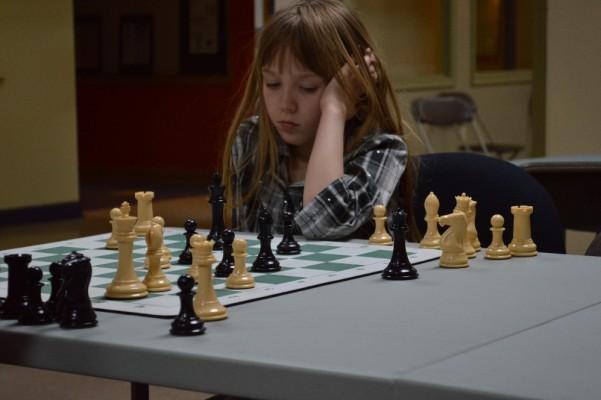
Why Every Great City Needs A Chess Club
Her brother - a middle school teenager - sits at another table nervously chewing his pen. His competitor, a retired IT specialist, leans close to ponder his next move.
Across the room, an auto mechanic and university music student furiously blitz final moves to beat the winding chess clock.
These players meet in VFW halls and coffee shops, in city parks and public libraries. They are all ages, backgrounds, and nationalities. But what they all share is a deep appreciation for the game of chess.
Chess is an unusual phenomenon in the history of world games. It’s been around for centuries. Once upon a time, real kings, queens, and ambassadors undertook chess study for political education, hence its nickname, The Royal Game.
Today an estimated 600 to 700 million people play chess worldwide on a regular basis. Many more have childhood memories of sharing the game with loved ones.
But are there greater benefits for chess clubs as a community institution?
Reason #2 -- Chess Clubs teaches “systems thinking”. Systems thinking is simply the art of seeing "the big picture”. It's a problem-solving approach that views the pieces as being connected to a greater whole. Simply put, the better you understand how the pieces move, and how to make them work together, the better you can formulate great answers to address problems.
This winning methodology can be applied to more than just chess. Yet many places exist that are wholly devoted to teaching this skill?
Reason #3 -- Chess Clubs highlight the best of diversity. Have you ever seen a silent crowd gathered around two chess players at war? What you don't see is the inner dialogue in each person's mind as they ponder what they would do in the hot seat. If you could, you would see how each person has a very unique way of imagining possible moves. Each person would have a unique playing style (tactical v. positional), a unique strategy (aggressive v. defensive), and a unique expertise (novice v. tournament player). All of these factors influence their outlook.
But who has the best idea?
At its best, a chess club is a positive learning environment where participants can share ideas and improve each other’s understanding of the game. Chess is a complex game with millions of possibilities. While it is possible that one expert player sees moves another cannot, it is also highly likely that another expert has a better idea.
Instead of resting comfortably in theory, we invite each other to present, challenge, and test moves to see what can be learned.
Nearly all chess players will agree, no matter good we are (or think we are), there is always more to learn.
So at the end of the night, wins and losses don’t really matter that much.
The real question we ask is, “Did you learn something new?”
The answer is almost always yes.
The final reason for why cities can benefit from Chess Clubs is a vital one.
Few pastimes survive antiquity to thrive in the 21st century. Yet modern times are much different from previous eras. Change moves extremely fast these days. Daily life is dependent on complex machines and intricate systems as never before.
Everything is interconnected.
Given these complex realities, our collective success as a society depends more on "seeing the big picture" and our ability to draw the best from everyone's perspective.
Suppose at the heart of every city there was a special place where the brightest minds could gather, interact, and challenge each other to develop better solutions? That sounds like a neat recipe for dynamic things to transpire.
At the Shenandoah Valley Chess Club, we like to think that we have created not only a safe haven for Chess, but a natural think-tank and community brain trust of problem solvers from all corners of the region.
We enjoy sharing ideas and learning something new. We celebrate our favorite game and enjoy each other’s company. There are many more reasons why Chess Clubs are a great idea. But it doesn't get much better than this.
